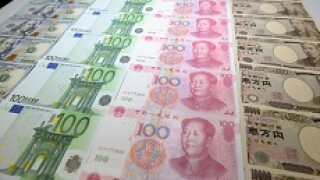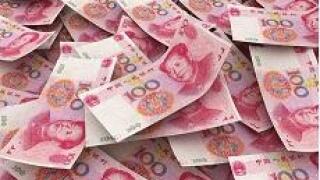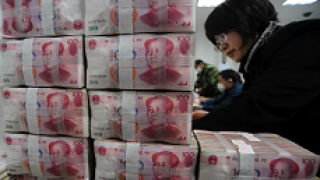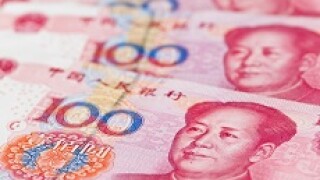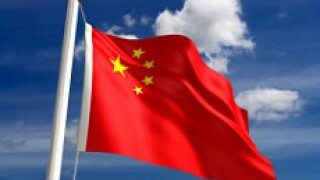SDR
-
Despite the technical challenges, it seems likely that People’s Bank of China (PBoC) will give the green light to a bond denominated in IMF special drawing rights (SDR) before the G20 summit in early September.
-
The World Bank is preparing to sell the first bond dominated in the IMF special drawing rights (SDR) unit of account, according to market sources.
-
The renminbi is joining the IMF special drawing rights (SDR) later this year, but that achievement does not mean mission accomplished for China’s authorities. For Beijing to achieve its stated goals of making the RMB a reserve currency and the SDR a real world currency more steps will be needed, according to leading monetary policy experts.
-
China is working hard to delivering on the promise of creating a multicurrency, global monetary system despite the difficulties in challenging the dollar’s status, according to an annual report by the think tank Official Monetary and Financial Institutions Forum (OMFIF) published on June 30.
-
The People’s Bank of China said on Tuesday it is contemplating the ‘orderly participation’ of commercial banks to trade in the offshore renminbi market. On paper, the proposed move seems to be a further opening up of its FX market. However, market participants say Beijing’s true aim is to exert greater influence on the CNH and maintain the stability of the renminbi.
-
The Bank for International Settlements (BIS) and the Monetary Authority of Singapore (MAS) have been investing in RMB assets ahead of the currency’s introduction into the IMF special drawing rights (SDR) basket of currency in October 2016, the two institutions said this week.
-
The People’s Bank of China (PBoC) is likely to issue its planned onshore bond denominated in special drawing rights (SDR) as a multi-currency structured note, according to industry participants.
-
There’s now only five months until the renminbi enters the IMF’s special drawing rights basket in October. But while this shows the progress the RMB has made, panelists at a recent conference are not expecting full convertibility anytime soon.
-
China's transition from an investment to a consumption economy is moving forward, but GDP growth concerns are likely to delay the country’s reform agenda.
-
China’s currency was approved to become the fifth member of the IMF’s special drawing rights (SDR) basket of currencies last November. While the new basket only becomes effecting in October 2016, China’s central bank has been campaigning worldwide for a greater role for the IMF’s unit of accounting, with the RMB set to benefit from the strategy.
-
Negative interest rate policies are pushing central banks to invest in emerging markets assets and currencies, according to a new survey sponsored by HSBC. The RMB, in particular, has seen a rapid growth in popularity over the past few years.
-
China is mulling the possibilities of issuing an SDR-denominated bond, the People’s Bank of China governor Zhou Xiaochuan said on Thursday.

